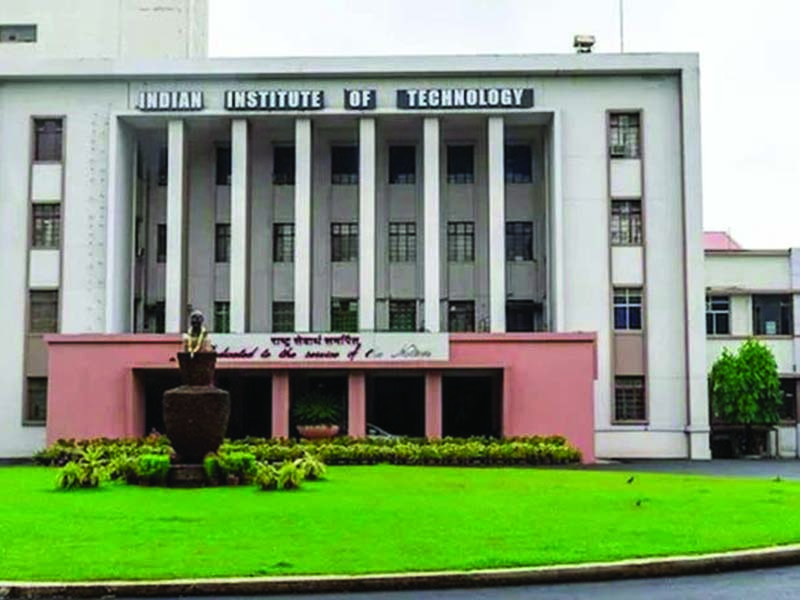No products in the cart.
West Bengal: Not rose beds
– Baishali Mukherjee (Kolkata)

IIT-Kgp main block: judicial wrath
Since the start of the current calendar year, the highly-reputed fully residential Indian Institute of Technology, Kharagpur (IIT-Kgp, estb.1951), which hosts 16,678 engineering students on its sprawling 2,100 acre campus, 133 km from downtown Kolkata, has reported six unnatural student deaths, five of which have been confirmed suicides. For an institute that is nationally acclaimed for higher education excellence, this grim toll indicates something gravely amiss on campus.
Student self-harm and suicides is not a new problem in IITs in general or IIT-Kgp. In 2017, IIT-Kgp partnered with YourDost, a 24×7 online counselling platform to conduct hostel-level counselling and awareness drives. Early this year, the institute renamed its counselling centre SARTH (Support, Acceptance, Resilience, Therapy and Healing), offering one-on-one therapy, psychiatric consultations, stress management, crisis intervention, and group sessions with assured confidentiality. Moreover in April, QR codes with messages like “Let’s Talk!” and “Every problem has a solution,” were placed on hostel room doors directly linking students to counselors. Yet, despite these well-intentioned measures, the rash of suicides this year has cast a shadow of grief and anxiety across the institution and beyond, leaving the campus community deeply disturbed.
Prof. Suman Chakraborty of the mechanical engineering faculty, who took charge as the institute’s director on June 23, acknowledges that the system has “certain lapses”. “There must be something wrong in the existing system for these incidents continuing to happen. I am trying to address the problem and bring about a holistic intervention programme combining cutting-edge technology in the form of AI-powered emotional health monitoring tools, professional expert support, and highly personalised interaction for the well-being of students. My mission is to ensure that such an incident never occurs again,” he informed a media conference.
According to informed educationists, students in India’s 23 IITs are under great pressure and stress from the moment they enter these prestigious institutions. For a start, they have to cram and study long hours to secure admission. Only 1.5-2 percent of 1.4 million school-leavers who write the pan-India two-step IIT-JEE (joint entrance exam) are admitted.
“All IIT students are products of India’s weak, rote memorisation-driven school system, whereas IIT curricula are globally benchmarked. Therefore right from the start, students are under great pressure to keep up with the curriculum. And a large number fail to do so, especially school-leavers admitted under caste quotas, who tend to come from weak government schools. These students also tend to have poor English language learning and suffer most. IITs don’t publicise drop-out numbers, but they are substantial. Moreover, there is the pressure of parental and community expectation, love affairs, caste tensions, ragging. It’s a wonder the number of IIT suicides isn’t greater,” says Prof. Pabitra Sarkar, a renowned academic, former vice chancellor of Rabindra Bharati University and former vice chairman of the West Bengal State Council of Higher Education.
Cetainly, this problem is not unique to IIT-Kgp. Between 2005-2024, IIT-Madras reported 26 suicides; IIT-Kanpur 18; IIT-Kharagpur 13 and IIT-Bombay 10. This phenomenon has aroused judicial wrath. Hearing Sukdeb Saha vs. State of Andhra Pradesh (2025), the Supreme Court excoriated a “systemic failure in addressing students’ emotional and mental health needs” in educational institutions, underscoring that mental health is integral to the right to life. Prompted by the 2023 suicide of a 17-year-old NEET aspirant in Vizag, the apex court mandated comprehensive mental health safeguards, including counsellors, in all higher education institutions and coaching centres. But to little avail.
Moreover, in the new age of AI and mind-boggling new technologies, ham-fisted government interference with syllabuses and curriculums is another downer. Instead of contemporising curricula urgently, the University Grants Commission (UGC) and education ministry are aggressively promoting Indian Knowledge Systems (IKS), described as pseudoscientific and historically inaccurate. Last year, IIT-Mandi introduced courses on “reincarnation” and “out-of-body experiences,” sparking apprehension about legitimisation of pseudosciences. And earlier this year, the education ministry permitted “gurukul” scholars without formal degrees to conduct research in IITs.
Evidently life is not a bed of roses for highly-subsidised and much-envied IIT students.
Post Views: 65














Add comment